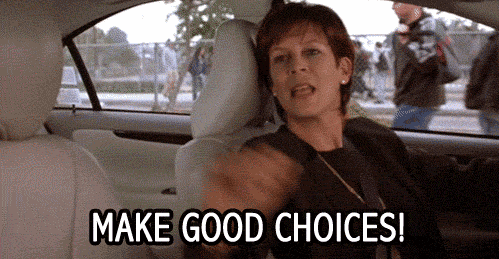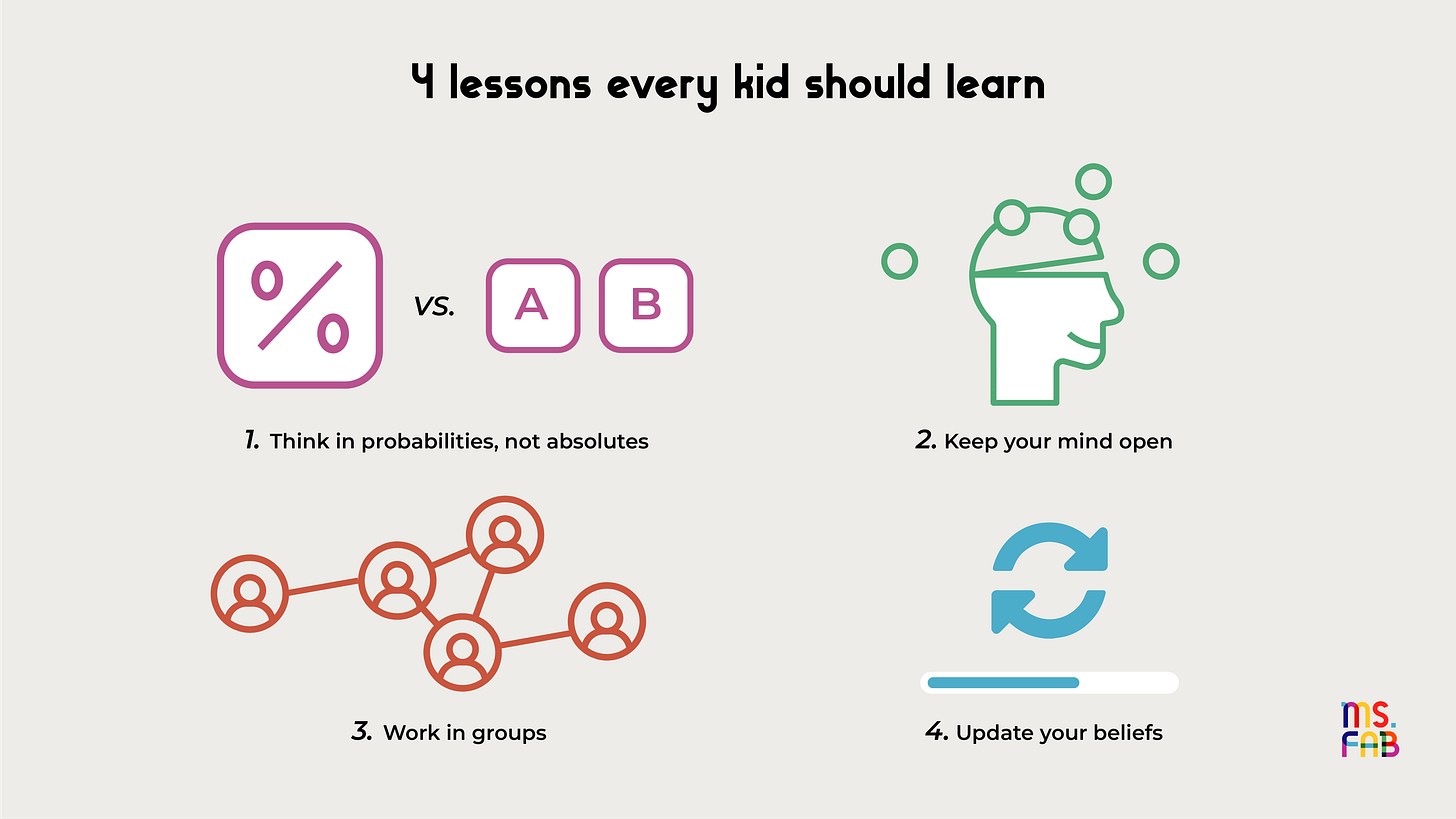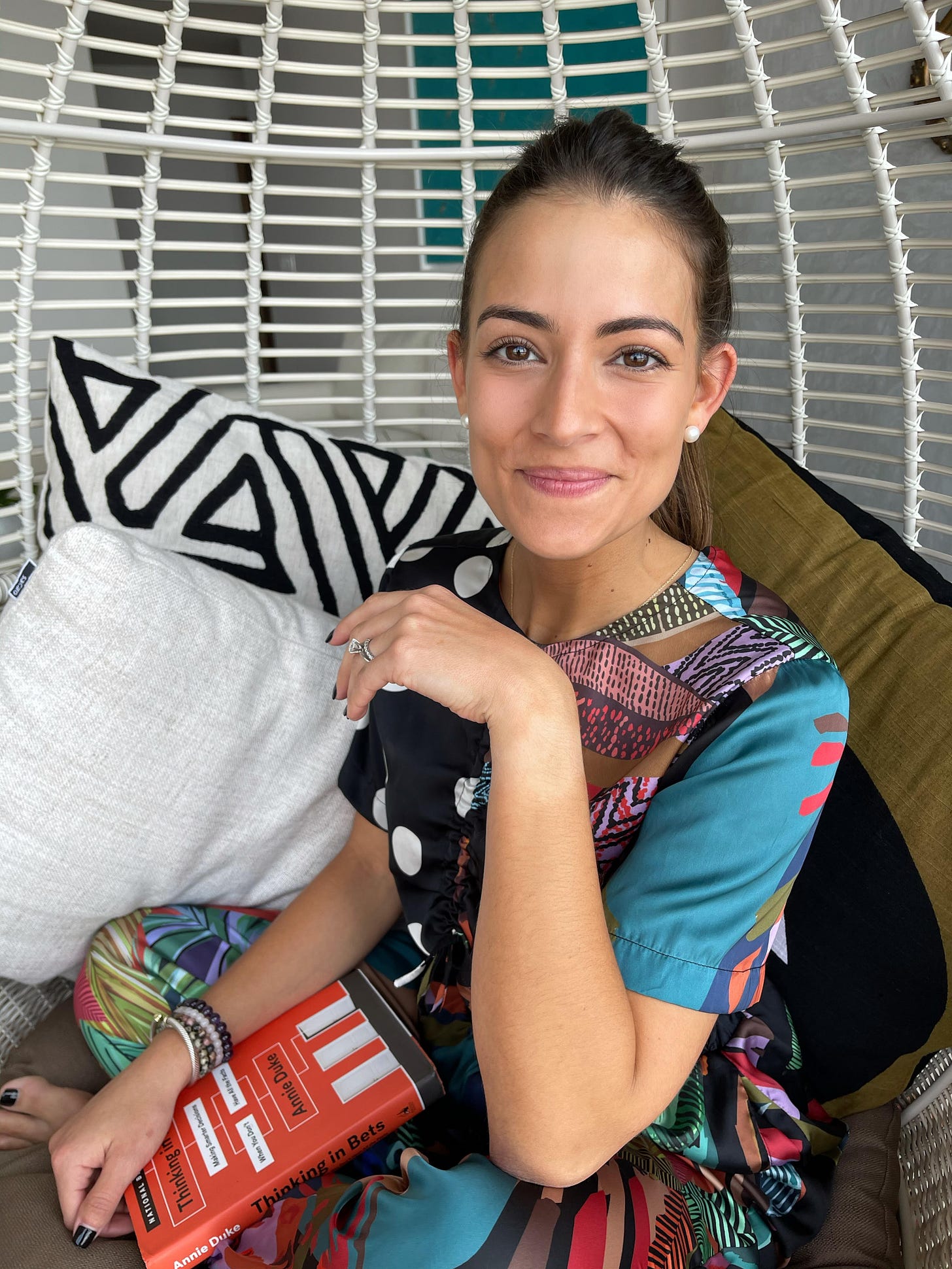Fab Fridays 63: Thinking in Bets
How to help kids use good decision-making processes
Great thinkers are great gamblers.
They constantly make bets and use probabilities.
Let’s talk about why this habit makes such a big difference, and how to help kids use good decision-making processes.
Tough choices require prospective thinking.
They make us consider the future.
Marriage, voting, investing, parenting, jobs—all the important decisions in life force us to think about how things will unfold.
The problem? The future isn’t certain.
In ten years, the world will look much different than any of us can imagine.
So, how do we make good choices when we’re not sure how things will play out? And how do we help our kids use good decision-making processes?
First, let’s do an exercise created by Annie Duke, former professional poker player and author of one of my favorite books, Thinking in Bets.
Think about your best decision last year.
Got it? Good.
How did that decision turn out?
Good
Bad
Average
If you’re like most people, then you picked a decision that ended well.
Why? because we tend to judge choices based on outcomes.
But that’s a problem that Annie Duke calls resulting.
In her book, Thinking in Bets, she uses the example of the Seahawks in the 2015 Super Bowl.
Coach Carroll called for a pass at the end of the game. The Patriots intercepted and won. So many people hated Coach Carroll because of the bad ending, but it was actually a good choice.
In fifteen seasons, only 2% of passes were intercepted in that situation!
We shouldn’t use results to judge our decisions. Luck plays too big of a role.
Instead, we should focus on what we can control.
We should focus on our decision-making process.
So, how can we help our kids use good decision-making processes?
Let’s discuss 4 lessons every kid should learn, and every adult should remember:
Think in probabilities, not absolutes
We naturally think in black and white, but life is much more complicated.
Resist saying “that’s guaranteed,” and use percentages instead.
The faster we learn that the future may go many different directions, the better!
Keep your mind open
As Philip Tetlock says, great decision makers are like foxes —they’re nimble, flexible, and adaptable.
It’s easy to always use one big idea to interpret the world, but practice the opposite. Try using many different perspectives before you settle on an answer.
Work in groups
We all have biases we can’t escape on our own.
The solution?
Build a team of thinkers with your friends! Point out mistakes you see in each other. Ask hard questions, and hold each other accountable.
Update your beliefs
Treat each decision like a little test.
How did that go? What did I learn? How can I improve next time?
Of course, some choices are too big to experiment with, but you can use most decisions as chances to learn and improve your thinking.
If you haven’t already, check out Annie Duke’s amazing book, Thinking in Bets.
She covers these tips—and so much more!
Workshop Ms. Fab + David Perell
I want to take a moment to mention David Perell’s Write of Passage. This course on writing online played a big part in my journey after I quit teaching. It helped me become a citizen of the internet and lean into my specific knowledge.
If you want to hear more on this, I’ll talk about it in my August 18 workshop!
ASU + GSV Summit
I’m excited to share that I’ll be a panelist at the ASU + GSV Summit this year—the largest education conference focused on innovation across the education sector 🚀
The summit will take place in San Diego, California, August 9-12, aka next week!
Ms. Fab will be participating in two different panels:
On Monday, August 9 you can catch me on the Breaking Out of the Box: New Models for K-12 Education panel, where I will talk about new and revolutionary forms education is taking in our post-pandemic era.
On Tuesday, August 10 I will be participating in the EdTech Achieves Unprecedented Consumer Adoption panel, that will highlight companies like Synthesis that saw rapid adoption since the beginning of the pandemic.
In both panels I’ll be joined by other education leaders, investors, and startups that are also building radical alternatives and models to traditional schooling 🚀
This year the summit will be a hybrid event, with over 5,00 onsite attendees and over 15,00 virtual attenders from more than 135 countries. So if this sounds interesting but you can’t make it to San Diego, you can join us virtually!
Here is the registration link.
Until next week!
Ana Lorena Fabrega









thx
These are great thoughts, thank you for sharing! I especially like the idea of thinking in probabilities rather than absolutes. Have an amazing day! 😊